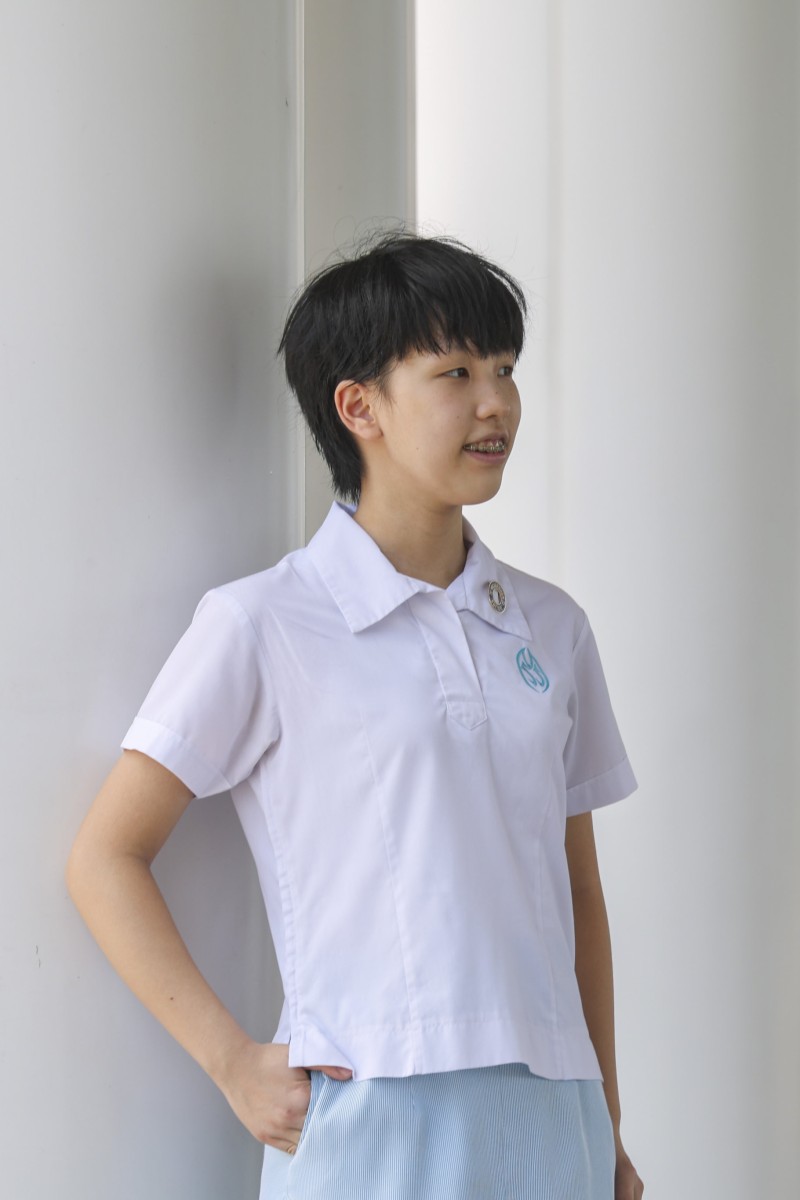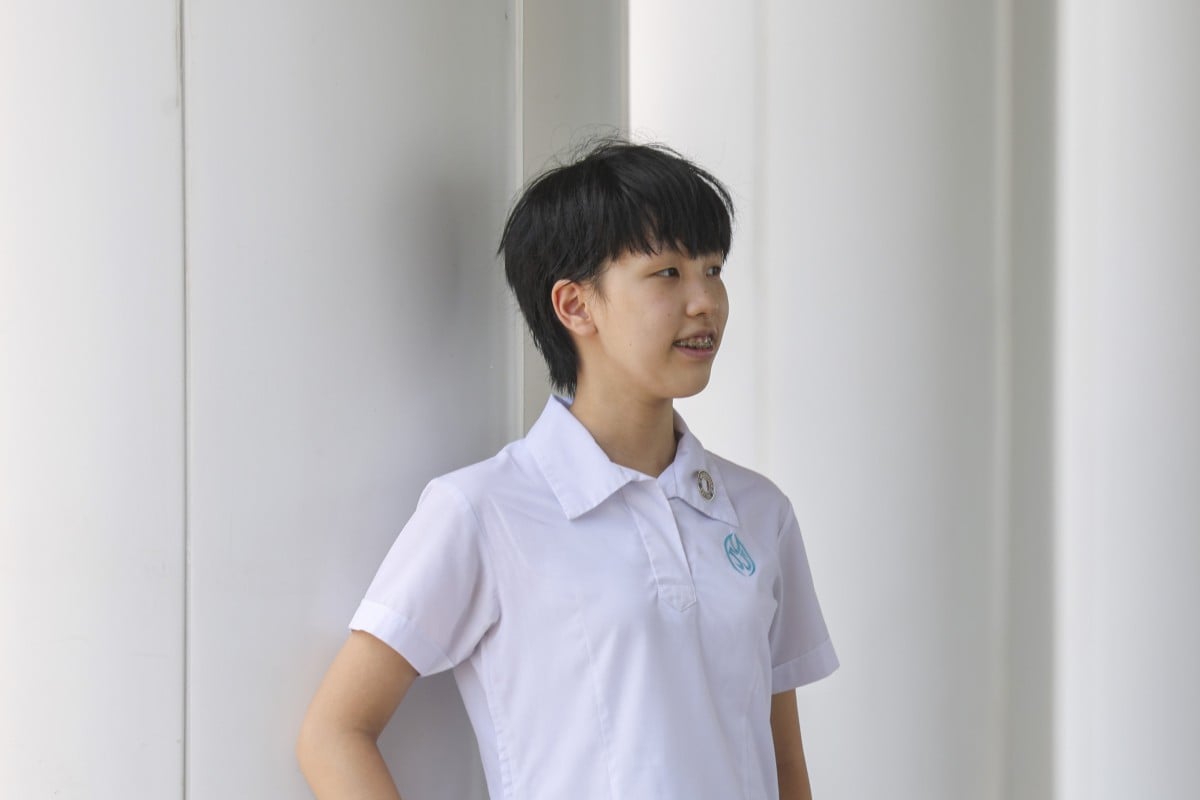
- Amber Wong Seng-ying introduced a Cantonese column in her school magazine when she was its editor-in-chief
- The 17-year-old from Marymount Secondary School is this year’s Linguist (Cantonese) winner in the Student of the Year Awards
 Amber Wong is a Form Six student at Marymount Secondary School. Photo: Edmond So
Amber Wong is a Form Six student at Marymount Secondary School. Photo: Edmond SoWhen Amber Wong Seng-ying was in Primary Five, her mother gave her a Chinese book that changed her life – The Deer and the Cauldron by renowned Hong Kong martial arts novelist Louis Cha Leung-yung. The little girl could not put it down until she finished it.
Amber spent more than a year reading the rest of the 14 popular novels written by Cha. The martial arts world created by the literary giant had captivated her and opened new doors for her.
“When I read more and more, I started to think – what if the plot goes the other way? Or what if this character doesn’t die? Then I began to develop my own writing ideas,” said Amber, 17, who won the Linguist (Cantonese) category of the Student of the Year (SOTY) Awards in the 2021-2022 school year.
How designing a Hong Kong font can help preserve Cantonese language
That sparked her interest in creative writing and she started to write novels online. But the first few attempts of the young novelist weren’t very successful – no one read any of her works.
Amber found her first “fan” in Form Three when she joined a writing scheme organised by Ming Pao Daily – it was her Chinese teacher at Marymount Secondary School.
She started writing prose and submitted it to her teacher. “She would spend 45 minutes reading my works line by line. I was so touched,” she recalled.
It encouraged her to keep writing. She wrote a 70,000-word novel about school life for a writing competition that year, winning a merit prize.
“Writing is great fun because when you have an idea, you can turn it into something big. People can dive into that world to escape from reality,” she said.
As an avid lover of the Chinese language, Amber wanted to inspire more people to see the beauty of it – so she started to write both in Chinese and Cantonese, which is known as a spoken language.
“A lot of people would limit Cantonese to a spoken language and never use it to write ... some might even think it is vulgar to write in Cantonese,” she said.
Hong Kong linguist on the ‘new possibilities’ of Cantonese education
But she hoped to break the stereotype by writing a column in Cantonese for the Hong Kong Pupil Literature Monthly Magazine in Form Five.
“I hope secondary school students can understand Cantonese is not only a spoken language ... it is a culture that we have to preserve,” she said. “Things can be expressed vividly in Cantonese, like our daily conversation. That is the special thing about writing in Cantonese.”
To promote Cantonese culture, Amber introduced a Cantonese column in her school magazine when she was its editor-in-chief and invited her schoolmates to write articles.
British teen on how learning Cantonese led her to start a YouTube channel
The Form Six student hopes to continue her writing journey while studying psychology at university. She says it can help her have a better understanding of human behaviour.
“The knowledge will also be useful for writing, as I have to shape the personalities of different characters.”
This year’s SOTY Awards is organised by the South China Morning Post and sponsored by The Hong Kong Jockey Club.
